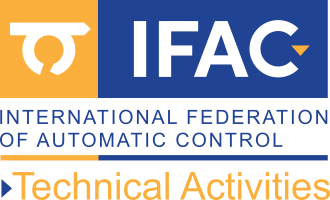Scope
Scope of TC5.3
"With the advent of the new cyber-physical system design paradigm, the number and diversity of systems that need to work together in the future enterprises have significantly increased (Weichhart et al., 2016). This trend highlights the need to shift from the classic central control of systems, towards systems interoperability as a capability to control, sense, and perceive distributed and heterogeneous systems and their environments, as well as to purposefully and socially act upon their perceptions (Romero & Vernadat, 2016). Such a shift could have important consequences on the future architecture design of the control of these systems. The emergence of cloud-based technologies will also have a significant impact on the design and implementation of cyber-physical systems; using such novel technologies, collaborative engineering practises will increase globally, thus enabling a new generation of small-scale industrial organizations to function in an information-centric manner and enabling industry 4.0 transformations (Cimini et al., 2017). The potential of such technologies in fostering a leaner and more agile approach towards engineering is very high (Panetto et al., 2019)".
Within this context, this TC's scope is to identify theoretically sound and practically viable techniques for the enterprise Internet-based collaboration, enterprise networking, and modelling languages to support the Sensing & Sustainable Enterprise.
In particular the TC:
- Investigates Collaborative Networked Enterprises Principles, Reference Models and Frameworks, Application Methods, Protocols and Information Communication and Technologies.
- Investigates Reference Models, Modelling Methodologies and Tools for Enterprise Networks Design and Implementation.
- Integration of PLM Systems in Enterprises, PLM tools, Methods and Standards.
- Internet of Things, Services and People for the Digital Enterprise.
- The Sensing and Sustainable Enterprise.
- Cyber-Physical (Production) Systems.
- ICT for Enterprise Sustainability.
- Investigates Theories, Models and Tools to Verify and Validate Enterprise Models.
- Investigates Methodologies and Technologies for Documenting and Storing Enterprise Models Enabling Models Reuse.
- Investigates Ontology-based Models and Theories to Facilitate Business (ERP, SCM ...) to Manufacturing (MES, SCE ...) Applications Interoperability.

